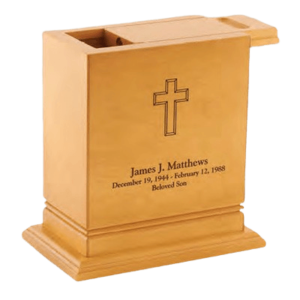Find the Answer to your Question about where Cremation Ashes can be Scattered
When a person dies and is cremated, he or she often leaves explicit instructions for the scattering of his or her remains. Carrying out these instructions can then become a blessed experience for the family members who agree to take on the task. But not everyone who creates such instruction is careful to assure that their desires are, in fact, in accordance with regulations and laws. And, in some cases, laws may change unbeknownst to the person in question.
So what happens if the important instructions of a loved one seem to conflict with rules or even laws? What is a family member to do with the Cremation Ashes in the Scattering Urn? Where, in fact, can cremation ashes be scattered?
This article will attempt to put to rest some of the anxiety a person may feel over scattering. Don’t let conflicting, confusing things you may hear from officials, or even friends, make things too stressful for you. Here’s just about everything you need to know.
Most Important Rule of Thumb about Cremation Ash Scattering:
Contrary to some popular belief, there is no health concern related to the scattering of ashes – even if the remains are of a person who died of a dangerous, contagious disease. Traditions – or even laws – that are still in place prohibiting the scattering of ashes are usually based on the somewhat superstitious belief (certainly a belief based on science) that ashes can be somehow a threat to human health.
Out of recognition that properly memorializing deceased loved ones is important for a grieving person’s psychological health, most such laws have been taken off the books since the last part of the 20th century. (It is certainly the case that few – if any – such laws have been adopted in the United States in the last 25 years or so.) But a few still remain, technically, in place, and a quick lesson in civics in order for those who may be tempted to worry over any of these laws that conflict with a loved one’s instructions: many laws in the United States remain in place long after they have been declared formally obsolete in practice or even declared unconstitutional by a state or federal court.

It is often the case that removing a law, technically, requires a great deal of effort that lawmakers never find worth making the effort to achieve. In one Texas town, for example, removing a portion of the city charter requires that two thirds of a city’s registered voters go to the polls and vote for the change. This is the only reason why that city still has law on the books saying that only property owners in the city may be elected to the city council. Such rules have long since been found unconstitutional by many supreme court cases, so city leaders realize they would face expensive, forceful opposition if they were ever to try to enforce their rule (if they should want to enforce it even!). So the rule is never enforced and, in fact, the majority of that town’s current council does not own property in the city limits.
The same rule of thumb applies, most certainly, to any rule against the scattering of ashes: it will simply not be enforced except in the most extreme of circumstances. Selecting an urn vessel for the sea, land or air scattering is an important part of the scattering of the ashes ceremony.
The One Main Exception To This Scattering Ashes Rule of Thumb:
The above should not be construed as legal advice, and we certainly do not intend to suggest that every single rule regarding cremation ashes will always remain unenforced. There is one class of cremation remain regulation that will certainly always be applicable and enforceable. Rules outlawing the unauthorized scattering of cremation remains on property one does not own can certainly be expected to be enforced in just about every state or municipality in the United States.
To that end, we offer this piece of advice: if your loved one’s ash scattering instructions include a request to scatter on private land, be absolutely certain that you have the land owner’s written permission.
In most cases obtaining permission from a private property owner will be a simple affair. Most reasonable people understand, as we stated above, that scattering of ashes is a harmless, yet emotionally important, activity. So only the most callous, or most ignorant, of land owners will deny such a request.
In the unlikely event that you do encounter such a person who will not honor a request to scatter remains on his or her property, many who have honored their loved ones by scattering ashes offer the same advice as this anonymous person:
“If it’s important to you that you honor your loved one’s memory exactly as instructed, and if a private property owner will not allow the remains to be scattered on his property, well, just do the deed at night or any other time when no one is looking. If this is really a matter between you and God, then what other men think is irrelevant. You should feel no guilt over this.”
Many will surely consider that dubious advice, and you should exercise great caution if you intend to adopt it. But many others will consider it an important contribution to this discussion of just where cremation ashes can be scattered.
In closing, the decision about where to scatter the remains of a loved one is deeply personal, one that, ideally, should be left entirely to the family, the deceased, and God. Most reasonable people today will agree with that idea and would not dream of interfering with a person (or family’s) intentions on this matter. There is little to be feared from simply following one’s conscious in this realm.
